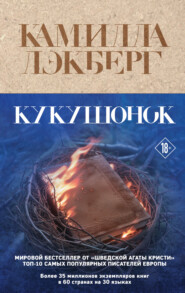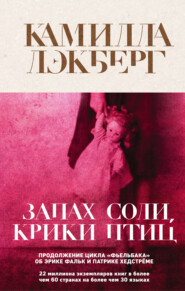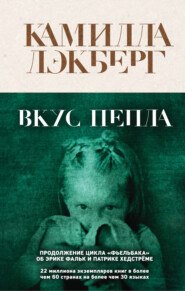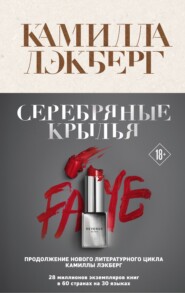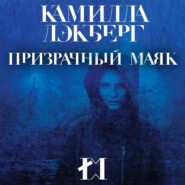По всем вопросам обращайтесь на: info@litportal.ru
(©) 2003-2025.
✖
The Girl in the Woods
Настройки чтения
Размер шрифта
Высота строк
Поля
The woman looked at her as if she were an idiot.
‘Of course it’s MMA. What did you think it was? Hockey?’
She chuckled. Martin noticed a glass of whisky on the table next to her chair. When I’m her age, he thought, I’m going to treat myself to whatever I want, and whenever I want it, and never mind what might be considered sensible.
‘It’s a title match,’ said the woman, her eyes fixed on the TV. ‘They’re fighting for the world championship. It’s been billed as the match of the year. So you’ll have to excuse me if I can’t give you my full attention right now. I don’t want to miss this.’
She reached for her glass and took a swig of whisky. On the TV screen the big blond guy knocked down the dark-skinned man with the bizarrely wide shoulders and then pounced on top of him. To Martin it looked like an assault that would have earned him several years in jail in real life. And what about those ears? What had those guys done to their ears? They were big and thick and looked like badly shaped lumps of clay. He suddenly understood what people meant by ‘cauliflower ears’ when they talked about fighters.
‘Three minutes to go,’ said the woman, taking another swig of her drink.
Martin and Paula exchanged glances. He could see she was trying hard not to laugh. This was the last thing they’d expected.
Suddenly the woman shouted and leapt up from her chair.
‘YES!’
‘Did he win?’ asked Martin. ‘Did Gustafsson win?’
The blond giant was racing around the cage like a lunatic. He jumped up on the edge and screamed. Apparently, he was the winner.
‘Cormier got beat. He had him in a rear neck choke, and he finally gave up.’
She downed the last of her whisky.
‘Is he the one they’ve been writing about in all the papers? The Mole – isn’t that what they call him?’ asked Paula, looking pleased she’d remembered that much.
‘The Mole? No, he’s called The Mauler!’ the woman snorted. ‘Gustafsson is one of the best in the world. Surely you know that – it’s common knowledge.’
She got up to go to the kitchen.
‘I’m going to make some coffee. Would you like some?’
‘Yes, please,’ said both Martin and Paula.
Having a cup of coffee was part of what they did when they were out talking to people. If they had a lot of interviews in one day, it was sometimes hard to get to sleep at night.
They got up and followed the woman into the kitchen. Martin realized they hadn’t even introduced themselves.
‘Sorry, we didn’t get a chance to tell you our names. I’m Martin Molin, and this is Paula Morales. We’re from the Tanumshede police station.’
‘Dagmar Hagelin,’ said the woman cheerfully as she set a kettle on the hob. ‘Have a seat at the table. It’s more pleasant. I only use the living room when I want to watch TV. I prefer to spend most of my time in here.’
She pointed to the worn wooden table, which was covered with crossword puzzles. Quickly she gathered them all up and set the pile on the window ledge.
‘A workout for the brain. I’ll be ninety-two in September, so I need to keep exercising the old noggin, else dementia will creep in faster than you can say … Oh, er, I forget.’
She laughed merrily at her own joke.
‘How did you get interested in MMA?’ asked Paula.
‘My great-grandson is involved at the elite level. He doesn’t compete in the UFC yet, but it’s only a matter of time. He’s good, and he’s ambitious.’
‘I see. But it’s still a little … um, unusual,’ Paula ventured.
Dagmar didn’t reply at once. She took the kettle off the hob using a crocheted potholder and set it on the table on top of a cork trivet. Then she got out three sweet little cups made of delicate porcelain with a pink pattern and gold rims. She put them on the table and sat down to serve the coffee. Only then did she speak.
‘We’ve always been very close, Oscar and I, so I started going to his matches. And it’s easy to get caught up in the whole thing. You can’t help it. I was quite a successful track-and-field athlete in my younger days, so I can relate to the tension and excitement.’
She pointed to a black-and-white photograph on the wall of a young and sporty-looking woman on her way over the high-jump bar.
‘That’s you?’ said Martin, impressed as he tried to match the image of the tall, slender, and muscular young woman with the tiny, stooped grey-haired granny sitting across from him.
Dagmar seemed to know what he was thinking and gave him a big smile.
‘Even I have a hard time believing that’s me. But the strange thing is, I feel the same way inside as I did back then. Sometimes I’m shocked when I look at myself in the mirror, and I find myself saying: “Who’s this old lady?”’
‘How long were you involved in sports?’ asked Paula.
‘Not long, compared to athletes today, but too long for those days. When I met my husband, I had to put sports aside, and then I had a child and a house to take care of. But I’m not blaming my daughter. That’s the way things were. She’s a fine person. She wants me to come and live with her when I can’t take care of the house any more. She’s getting on in years herself. She’ll be sixty-three this winter, so I think we’d get along all right if we ended up under the same roof.’
Martin took a sip of coffee from the delicate cup.
‘It’s Kopi Luwak coffee,’ said Dagmar when she saw the look of pleasure on his face. ‘My eldest grandchild imports it to Sweden. It’s made from coffee beans eaten by civet cats. The civets poop out the beans, which are then gathered, washed, and roasted. It’s not cheap. Usually costs about six hundred kronor per cup, but as I said, Julius imports the coffee, so he gets it for a better price, and sometimes he gives me some. He knows I love it. You’ll never taste better coffee.’
Martin looked at the coffee aghast, but then shrugged and took another sip. He didn’t care where it came from when it tasted so divine. He hesitated for a moment but decided it was time to move on from the small talk.
‘I don’t know whether you’ve heard the news,’ he said, leaning forward. ‘But a little girl was found murdered up here in the woods.’
‘I heard. My daughter came by and told me,’ said Dagmar, her expression darkening. ‘That sweet little blonde girl who was always running around like a tornado. I still go out for a long walk every day, and I often go past the Berg farm. I’d often see her out in the yard.’
‘When did you last see her?’ asked Martin, taking another sip of coffee.
‘Hmm … when was it?’ said Dagmar, looking pensive. ‘Not yesterday, but the day before, I think. On Sunday.’
‘What time of day?’ asked Paula.
‘I always take my walk in the morning before it gets too hot. She was out in the yard, playing. I waved to her as I walked past, like I always do, and she waved back.’
‘So that was Sunday morning?’ said Martin. ‘But not since then?’
Dagmar shook her head.
‘No. I didn’t see her yesterday.’
‘Did you happen to see anything that struck you as unusual? The smallest detail could be important. So even if something seems trivial to you, better to tell us and we’ll decide whether it’s significant or not.’
Martin drank the rest of his coffee. He felt so clumsy holding the fragile little cup in his hand. He set it carefully down on the saucer.






